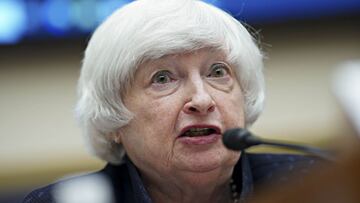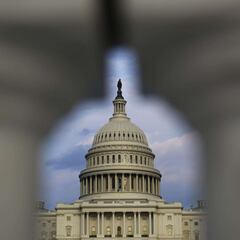$600 tax rule: what transactions would the IRS be able to track?
To cover the costs of new spending, the Biden administration has proposed a new rule that would give the IRS license to see transactions for bank accounts over with over $600.


In a recent report by the Internal Revenue Service (IRS), the agency estimated that the federal government loses around $166 billion in revenue to tax avoidance each year. In hopes of limiting tax evasion, the Biden administration has proposed a new rule that would allow the government to monitor bank accounts with over $600.The move has sparked outrage by Republicans, who see it as a prime example of government overreach.
The proposal would mandate that each year financial institutions report "gross inflows and outflows with a breakdown for physical cash, transactions with a foreign account, and transfers to and from another account with the same owner." These requirements would also apply to those trading in cryptocurrencies.
Treasury @SecYellen: “Over the next 10 years the American people could see roughly $7 trillion fall through the cracks of our tax system. [...] Today the IRS has fewer auditors than at any time since World War II.” https://t.co/hvjEgPAV8H pic.twitter.com/fIOUcXiCP3
— The Hill (@thehill) May 27, 2021
To cover the costs of the bipartisan infrastructure package, the reconciliation bill, lawmakers on Capitol Hill have been eagerly assessing various ways to reduce tax evasion, which is where the idea gained traction.
How would this impact most workers?
Most people who earn income through formal employment would not be impacted by the change, as the IRS already knows how much money one makes based on their W-2. Additionally, most people in the US do not have an additional or foreign bank account to hide funds from the Treasury.
The people who would be impacted are generally wealthier. For those who own their own business, the IRS has less access and relies on self-reported financial information, which leaves room for avoidance. Treasury Secretary Janet Yellen said that the new rule would be an attempt to provide the same level of financial detail on those individuals as the IRS has on low and middle-class workers.
Sec. Yellen disagrees, arguing that the continuation of the status quo will do severe damage to the US economy in the long run because the loss in revenue "deprives [the government] of the resources to make America more productive and competitive."
Objections
New Hampshire Senator Cynthia Loomis believes that change could have a very harmful impact on the financial sector, making the IRS job even more difficult. Sen. Loomis argues that the increased scrutiny on banking could drive people out of the formal sector "just to thwart IRS access to their personal information not because they're trying to hide anything, but because they're not willing to share everything." However, many Democrats disagree with the premise of Sen. Loomis' argument. Should hiding financial information allow a person to avoid paying taxes, there is little logical justification to let the lack of oversight continue.
Biden wants the IRS to collect ALL data on financial transactions of Americans w/ $600 or more in their bank acct. My speech on this outrageous privacy invasion ⬇️
— Rep. Andy Barr (@RepAndyBarr) September 29, 2021
🚨Today, House Dems blocked a bill I voted for preventing Biden’s IRS rule from going into effect. Disgraceful!🚨 pic.twitter.com/sRFXRYv75U
Related stories
Some within the business community worry about the security infrastructure needed to protect financial information as it is transferred to the IRS. The President and CEO of Renasant voiced his concern by saying that the potential benefits do not outweigh the risks of data breaches, infringements on financial privacy, and the overburdening of the "banking system with massive data collection responsibilities."
Additionally, some Republican lawmakers have flagged that issues the IRS has had keeping financial information private. This past summer, ProPublica reported that billionaires including Jeff Bezos and Elon Musk had paid very little in federal income taxes, based on leaked information from the IRS.

